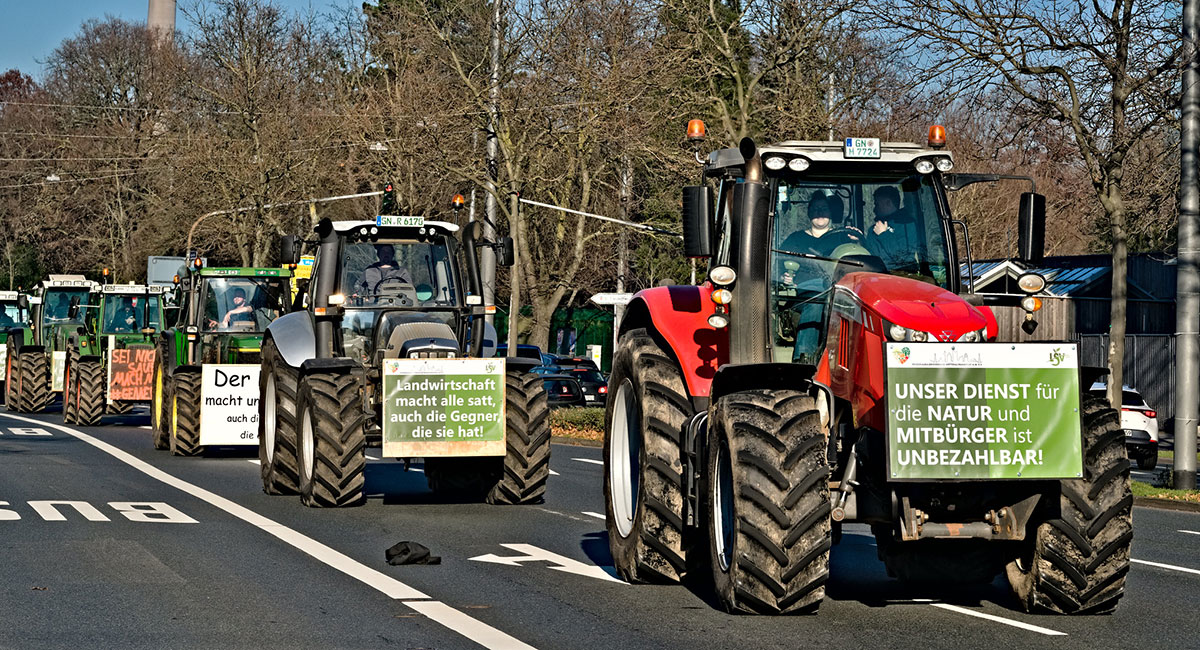Farmers in several European countries—including France, Germany, Belgium, Spain and Romania—are furious again, protesting against their neighbors, the European Union, the United States, Canada, Australia, China, Brazil, and other non-European countries. They’re mad at the world.
Who can blame them? One would have to be totally insensitive not to feel empathy for the European farmers who have endured hardships in the last few years. Not only have they had to deal with COVID-19, inflation, and the war in Ukraine—Europe’s breadbasket—but they’ve also been the victims of many contradictory and counterproductive government decisions, some of which they and their allies previously backed, and against which they now rage.
This reminds me of one of the teachings of Isaiah Berlin, the great Latvian and British philosopher, who pointed out in a now-famous 1958 Oxford University lecture, “Two Concepts of Liberty,” that many of the values, objectives and causes that humans pursue are incompatible and contradictory, and only pluralism allows them to coexist without causing too much damage. The French motto “Liberty, Equality, Fraternity,” for example—introduced during the French Revolution—illustrates the conflict, because if you want to increase liberty, you have to decrease equality. If you want to impose equality, you have to sacrifice liberty.
Nothing reflects this truth better than what is happening with the more than 9 million farms in the EU’s 27 member countries.
Consider these obvious contradictions:
On the one hand, European officials want to help domestic farmers become more internationally competitive, which requires production increases and lower prices. On the other hand, these same officials want to compel citizens, including agricultural producers, to forgo fossil fuels and transition to a decarbonized economy (“net-zero emissions,” an EU goal for 2050), which raises farmers’ costs and ties their hands with regulations.
While EU officials seek to increase agricultural production so that farmers can export more of what they produce, in addition to feeding Europe itself, they also protect small, inefficient farms. Two in 3 farms in the European Union measure less than 5 hectares (about 12.3 acres). The average U.S. farm, by comparison, is 20 times as large and, to no one’s surprise, is much more productive and competitive. It should also come as no surprise that these same protectionist policies sometimes spawn corruption, with large farms deceitfully dividing their acreage into smaller plots to qualify for EU assistance.
Another contradiction: EU officials have proposed boosting the union’s huge budget so they can send 50 billion more euros (about $53.6 billion) to Ukraine. But at the same time, they’re calling on EU member governments to reduce their deficits below 3% of gross domestic product, as EU rules mandate, a classic example of one goal colliding with another.
Many European governments also complain about unfair competition from non-European countries. That’s why France recently prevented a proposed free trade agreement between the EU and the Mercosur countries (Argentina, Brazil, Paraguay and Uruguay—the so-called South American Common Market) from being established. Meanwhile, the EU spends 60 billion euros annually to protect agriculture through its common agricultural policy, which other countries consider unfair.
Although Europe’s farmers have been receiving high prices recently for their exports, profit margins are almost nonexistent due to the high costs they have to bear from suffocating government directives, mandates, regulations and requirements. It’s a comedy of errors everywhere you look.
What has happened to France, the EU’s leading agricultural producer, speaks volumes. France’s share of the world agricultural market has cratered from 8% to 4% in the last two decades, a 50% decrease, dropping it from the EU’s second-largest agricultural exporter to sixth largest. Meanwhile, the share of imported food consumed in France has doubled from 10% to 20%.
The lesson, surely, is that politicians and bureaucrats cannot pursue incompatible policies, impose contradictory mandates and regulations on their economies and people, and pretend that their actions have no cost.
As Europe’s farmers and consumers are finding out, there’s a terrible price to pay. Let that be a warning to Americans.













